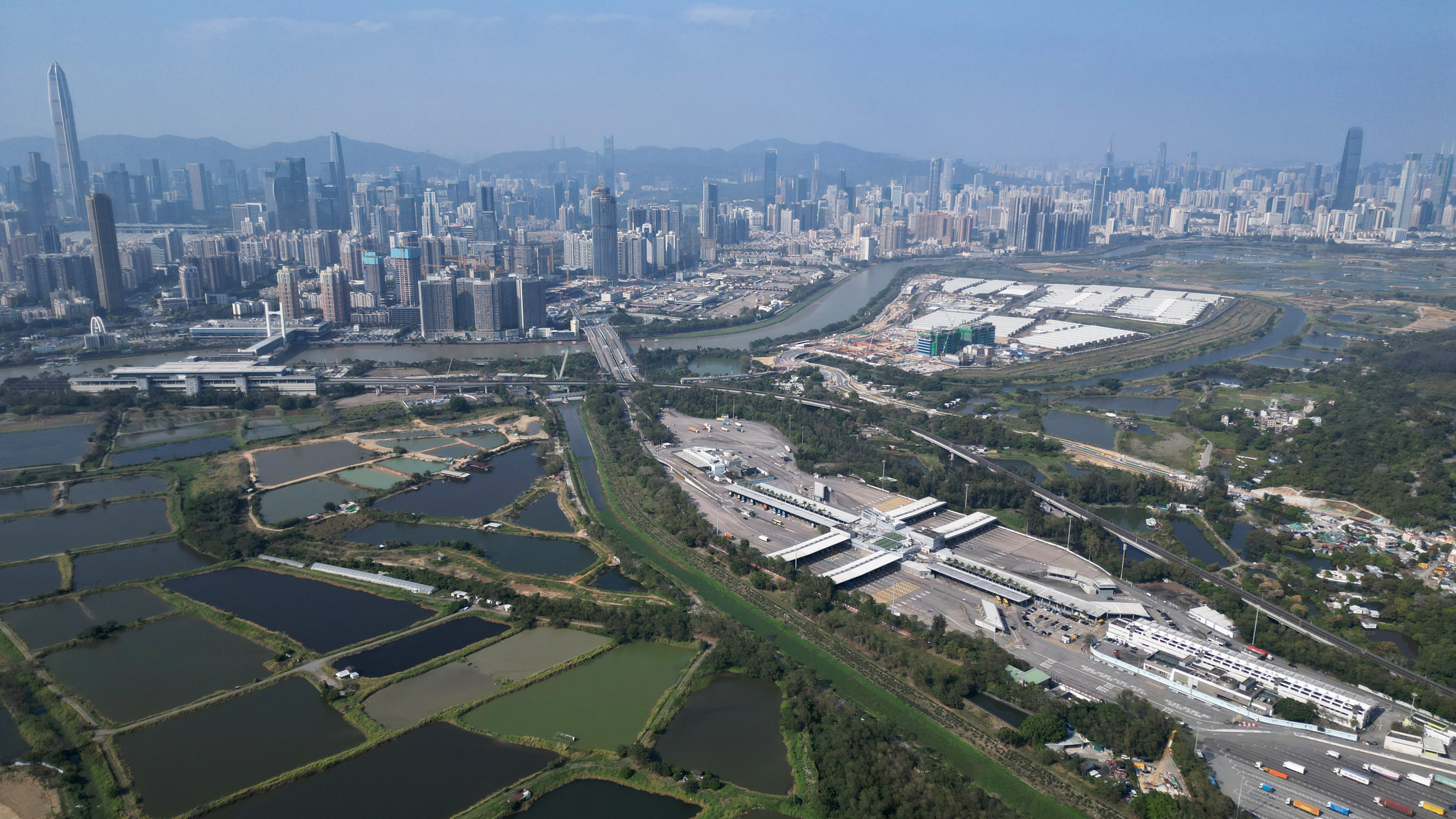By Edith Lin,Leopold Chen
Copyright scmp

Hong Kong residents will enjoy the “dividends” of the Northern Metropolis, the city leader has said, while vowing to use investment and preferential measures to accelerate the megaproject’s development amid a budget deficit.
Chief Executive John Lee Ka-chiu made the pledge on Sunday as his innovation minister said he believed that several companies joining the initiative would enjoy preferential land prices this year.
Lee also urged his finance chief, Paul Chan Mo-po, to manage the government’s funds wisely as Hong Kong planned to set aside money to create entities that would manage the various industrial parks forming part of the 30,000-hectare (74,130-acre) megaproject.
The city leader made the remarks in a televised interview in response to a question about whether spending public money on the Northern Metropolis would exacerbate or prolong the city’s financial deficit.
The latest budget, which was unveiled in February, forecast a HK$67 billion (US$8.6 billion) deficit for the current financial year ending in March.
In his reply, Lee stressed the need for investment and cited the use of public funds to help establish the Hong Kong Science and Technology Park in 2001 as part of efforts to boost the city’s digital competitiveness.
“Such investment will see returns, and its dividends will finally go back to residents,” he said.
He added that the megaproject was not simply a housing project, stating that the government would tighten its oversight of developers applying to build private housing estates there.
“The Northern Metropolis is an important development project that will operate at a higher level. Its achievements may sound remote to the public, but my heart is set on improving livelihoods,” he said.
The megaproject was proposed by authorities in 2021 and centres around building an economic powerhouse driven by the innovation and technology (I&T) sector. It is also expected to provide 240,000 new homes in the coming decade.
In his latest policy address last week, Lee announced that the government would accelerate the megaproject and attract businesses by introducing designated laws, streamlining administrative procedures and devising financing models.
He also said in his policy blueprint that Financial Secretary Chan would be tasked with overseeing policy bureaus and public organisations in formulating “preferential policy” packages to attract high-potential enterprises to the city.
Lee said the development of the megaproject, which is expected to cover a third of Hong Kong’s total land area, had faced two major bottlenecks in terms of land development and funding.
He added that authorities wanted to inject public funds into the Northern Metropolis to help attract local and international investment.
Appearing on a radio show on Sunday, Secretary for Innovation, Technology and Industry Sun Dong said he believed several enterprises joining the megaproject would enjoy preferential land prices this year.
“Under the prerequisite of not affecting the overall value of our land, we are making some reasonable arrangements to allow companies to gain entry at a more affordable price. We are currently piloting this with several projects,” he said.
Sun added that more policy support was needed to build an industry, such as measures concerning labour training and amassing resources.
The minister said he believed more mature policies would be introduced as the I&T industry developed further.
In his blog on Sunday, financial chief Chan said the government’s preferential policies included land grants, land premium discounts, concessionary taxation, priority procurement, talent admission and financial subsidies.
He said the exact preferential policies on offer would depend on individual circumstances, adding that he would have the final say in such cases.
“Key consideration is the extent of benefits that the company can bring to Hong Kong’s economy, the industry’s upgrade, transformation and development, as well as employment and future tax revenue,” he said.
He said InvestHK, a government agency responsible for attracting foreign direct investment, and the Office for Attracting Strategic Enterprises would conduct due diligence and seek support from relevant bureaus while speaking with target companies.
Chan said his work group supporting the megaproject would design various financing proposals, as substantial capital was required to develop sizeable industries.
Suggestions included different types of shares, bonds, market financing, public-private partnerships, the government’s capital injection and the “provision of land as a form of capital participation”, he said.
Chan said the last option referred to setting up a company for an individual project that involved the government’s contribution of land, while the private enterprise would provide capital and be responsible for construction and operation.
“Our aim is to fully leverage the market’s resources to accelerate the land development and project, while reducing the government’s financial burden for land formation, infrastructure and other early-stage works,” he said.